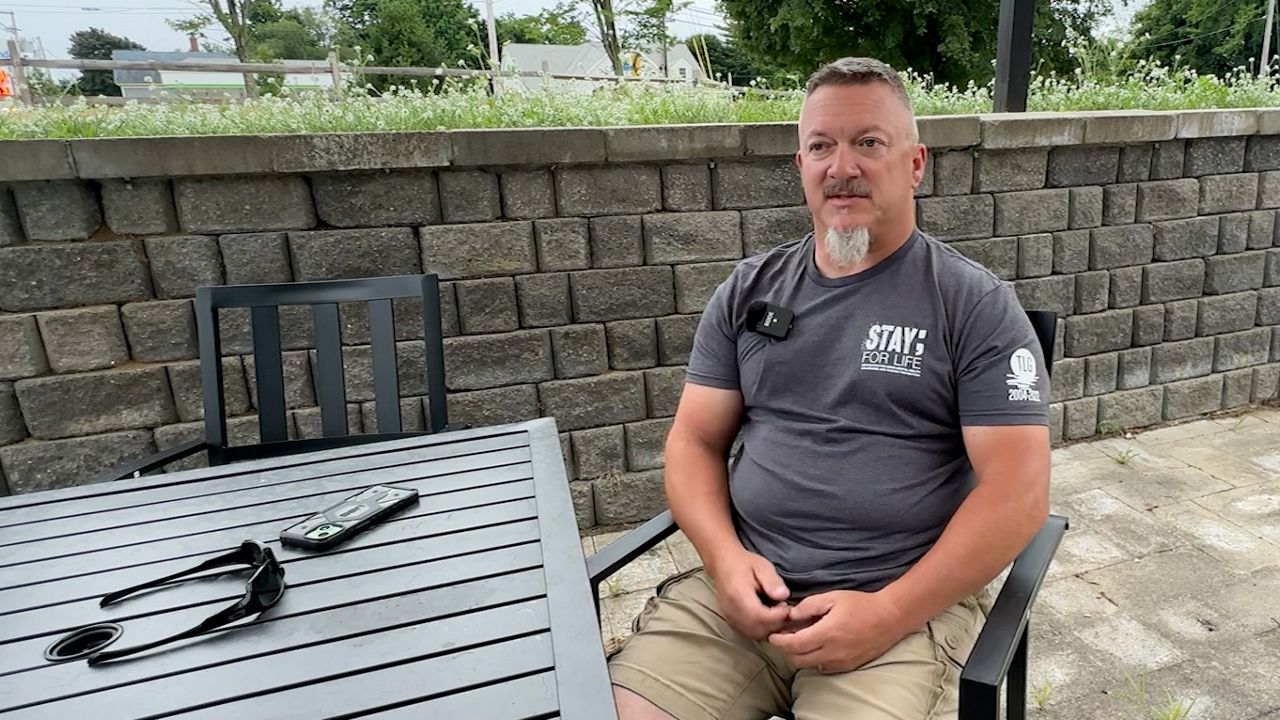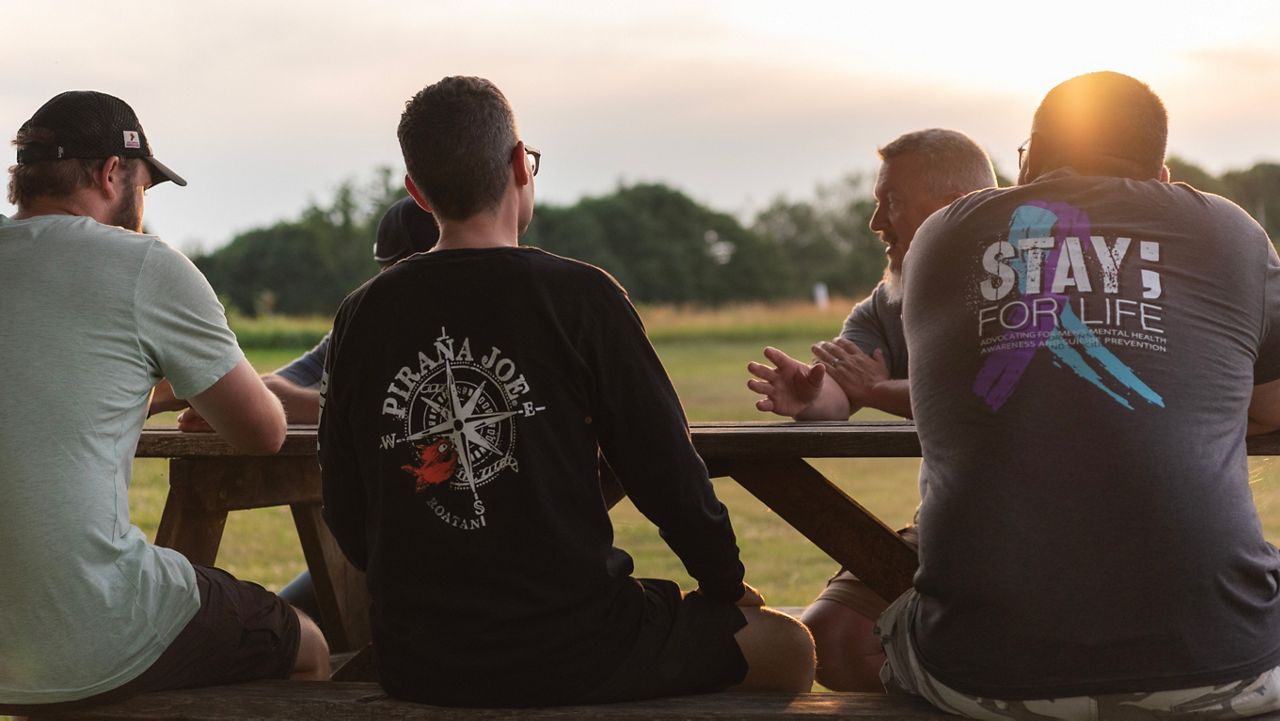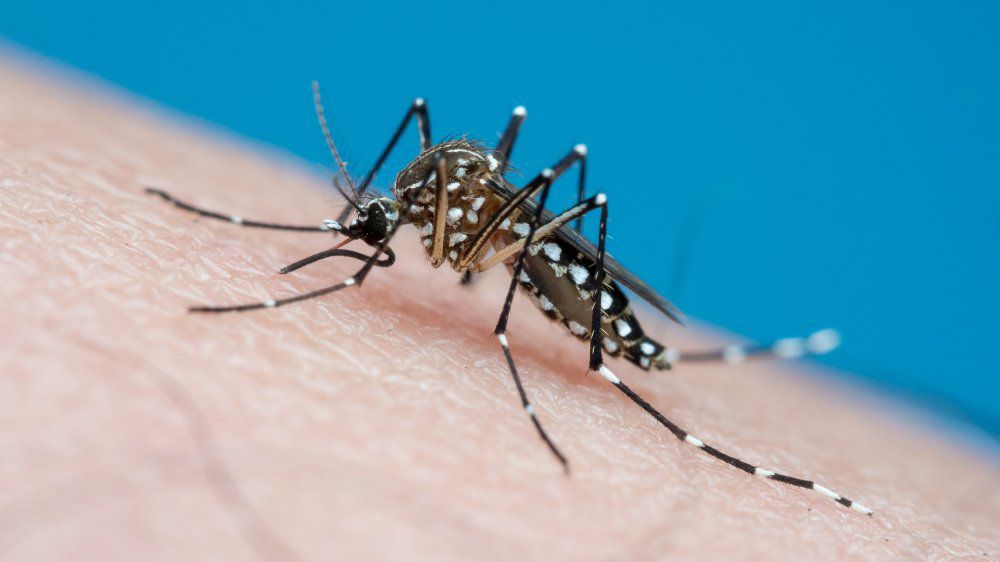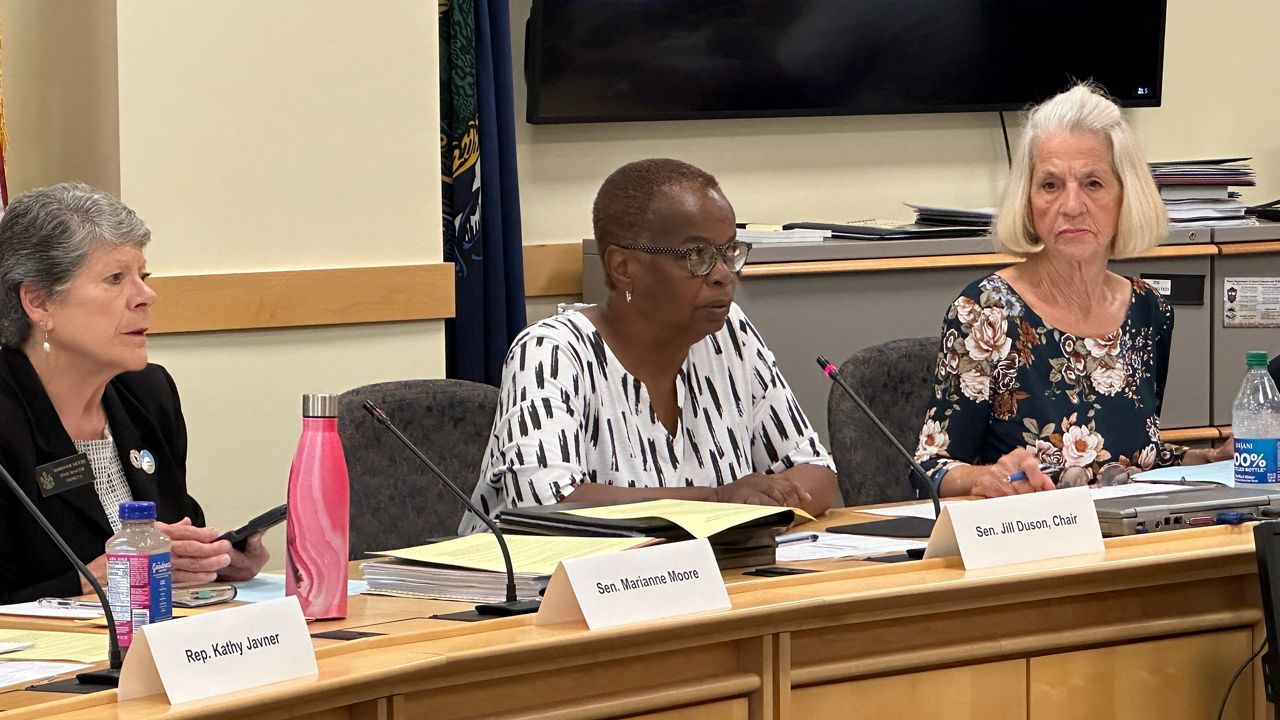A new support group wants to help men who are thinking about suicide. In the process, the group wants to break stigmas about men’s mental health.
The Man to Man Peer Support Group began meeting weekly in May in Wells.
“It is the most low-key opportunity I can think of to come share if you want to, listen and be maybe a helpful ear for somebody else, or get stuff off your chest in a really stress-free judgment-free environment, you know?” Man to Man co-founder Donnie Whitten said.
Whitten and his wife, Angela, founded the group as part of a nonprofit they created called Stay; For Life. Angela Whitten said the couple started the venture in August 2022, in the wake of Angela's son, Trent, 18, Donnie's stepson, dying by suicide the June before.
She said her son’s death prompted both parents to take a harder look at suicide and men’s health.
They discovered some shocking statistics.
For example, data from the National Institute of Mental Health shows that in 2021, four times as many men died by suicide as women.
“The bottom line is that we’re losing way too many men due to suicide, and in all our communities and our society have this stigma surrounding men and their mental health,” Angela Whitten said, “and frankly we were tired of it. We’re tired of every man thinking they need to stuff their feelings, and ‘stiff upper lip’ and those kind of things.”
A CHANGE IN PERSPECTIVE
Man to Man is not about eschewing masculinity in the name of feelings. Donnie Whitten is running the weekly sessions. By his own admission, he is not a psychotherapist. He teaches physical education in Biddeford during the school year and works construction in the summertime.
Whitten described himself as the product of an upbringing that included “old-school” macho stereotypes and attitudes. He said those attitudes informed his approach to the concept of suicide prior to June 2022.
“My view of suicide used to be, ‘That’s somebody being very weak,’ and ‘That’s a cowardly thing to do,’ and ‘That’s the easy way out,’ and stuff like that. That used to be my take on it,” he said. “It took a lot of listening and talking and soul-searching through all this stuff that we’ve gone through after losing Trent to change my perspective.”
The Whittens formed an advisory group of volunteers to help them shape the peer group.
Kerry Hoag is one of the advisers and a practicing psychologist based in York for 20 years. Anything that helps with the increased demand for mental health care, she said, is welcome.
“I see a real mental health crisis,” she said. “We’ve never been in times like this before, and I think Stay; For Life could not be better timed.”
Hoag said prior to the coronavirus pandemic, she had no problem referring patients to other therapists if she couldn’t take on anyone new. Now, she said, no one is taking new patients.
For men, Hoag said, it’s worse, as a stigma based on society’s need for men to be strong makes it even harder for them to reach out at all.
“Especially to men, we give the message that it’s not OK to not be OK. You have to be OK at all times and have everything all right,” she said.

LOCAL HELP AND A GLOBAL PROBLEM
More than 11,500 Mainers went to the emergency room in 2023 for issues related to suicidal intents, according to data from the Maine Centers for Disease Control and Prevention. That’s a figure that’s had a slow but steady increase since 2017, when the number was more than 9,400.
Maine CDC does not break its figures down by sex.
The Maine Suicide Prevention Program strategic plan for 2020-2025 – a Maine CDC suicide prevention initiative – does not mention men specifically in its target populations or key groups.
However, U.S. CDC data shows that in 2021, males, who make up 50% of the population made up nearly 80% of suicides.
It’s not just a local, or even national problem. Hoag cited data from a study done in the United Kingdom that found 77% of men acknowledged they struggle with some form of mental illness.
Of those men, however, as many as 40% said they have never spoken to anyone at all about their problems, let alone a professional, Hoag said.
“That right there is the problem,” she said.
The pandemic further isolated people, Hoag said, and while social media provides the illusion of connection, those connections don’t always aid men with mental health issues.
“They’re not speaking about things that are important to them, which is what the men-to-men peer support group could do,” she said.
The support group meets at Laudholm Farm in Wells. The meetings don’t include professional therapists to reinforce a low-key, no-pressure approach.
The first meeting was on May 21. Donnie Whitten called it an “open house,” did little to market or promote it and said he wasn’t sure how people would react.
“We had a dozen guys show up, which was amazing,” he said. “It turned into a meeting.”
Since then, Donnie Whitten said, there have always been men attending. Numbers have dipped a little in the summer, but between four and eight men attend each week.
The meetings are meant to be anonymous. The men are of all ages and different backgrounds.
The Whittens hope to see the group grow to the point where it holds multiple sessions in multiple locations.
“We want this to become something that goes everywhere,” Donnie Whitten said.
Hoag said the peer group is doing for men what everyone should do, which is normalize mental illness and recognize that it’s nothing to be ashamed of.
“I think it’s a matter of all of us to be having conversations, to be checking in with friends. When friends make comments like, ‘Oh, I don’t want to be here anymore,’ actually following up with that,” she said.
The support group meets every Tuesday from 6:30-7:30 p.m. To learn more, visit stayforlife.org.
If you or someone you know needs help right now, call the Maine chapter of the National Institute of Mental Health at 1-800-464-5767. If you or someone you know is in crisis, call the institute’s crisis line at 988.









